Families For Life | Mini Marriage PREP Tips: 4 Communication Patterns to Avoid
In achieving a great marriage, learning how to manage disagreements and solve problems in ways that protect the relationship is a key skill. Research has found that there are four common destructive patterns that couples can fall prey to, if the conflict is not handled well.
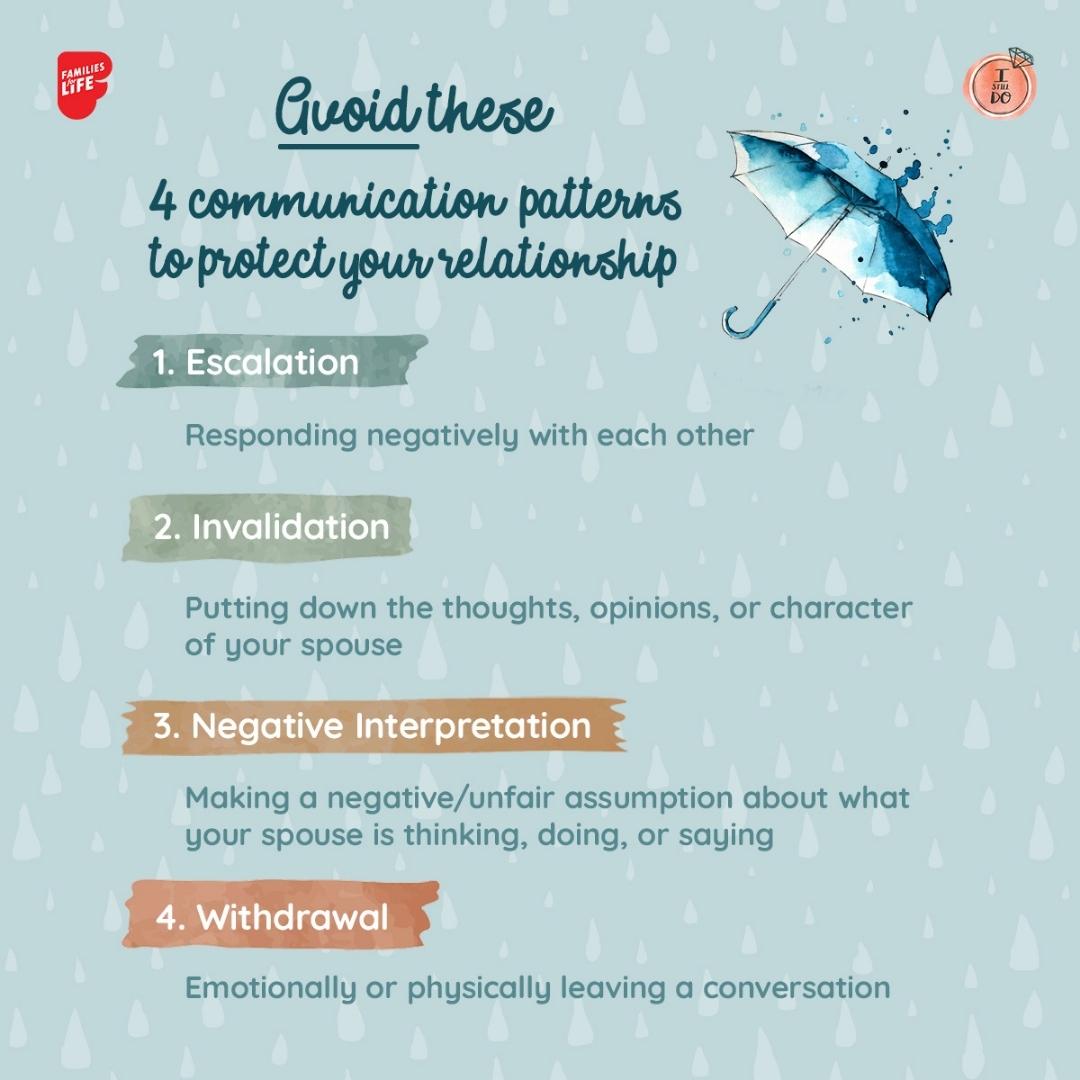
Escalation: Responding back and forth negatively to each other.
Invalidation: Putting down the thoughts, opinions, or character of the other person.
Negative Interpretations: Making a negative and unfair assumption about what the other is thinking, doing, or saying.
Withdrawal: Emotionally or physically leaving a conversation.
The good news is that all of these patterns can be avoided by applying simple but effective communication skills. Marriage programmes can equip you with these simple communication skills.
Understanding Communication Danger Sign #1: Escalation
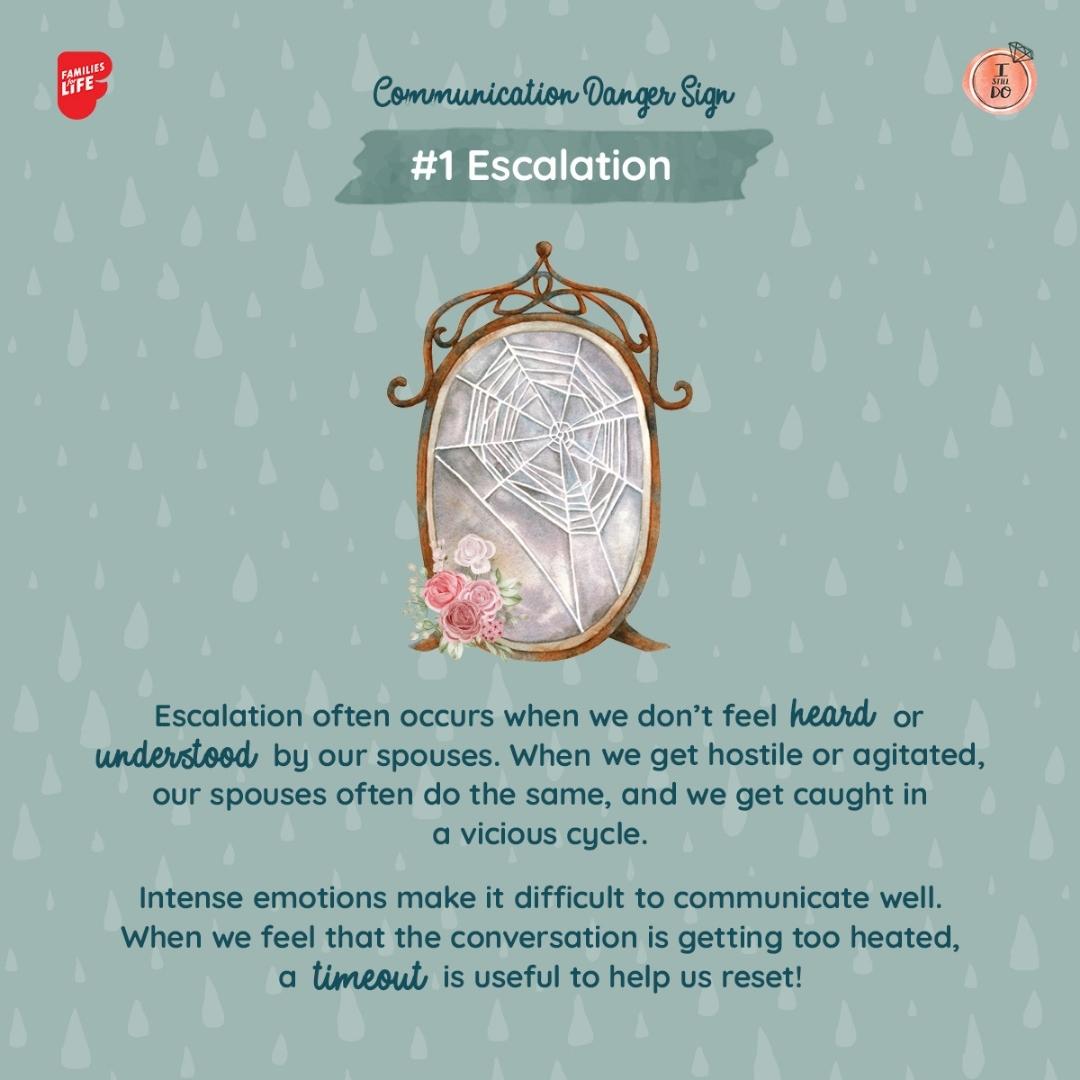
In the heat of the moment, it’s easy to get swept up in our emotions and let things escalate beyond control. Escalation often occurs when we don’t feel heard or understood by our partners. We get louder, more aggressive, and frustrated trying to make our point. The big swell of emotions makes it difficult to communicate well and blaming and accusations may take over.
When we get hostile or agitated, our partners often reciprocate and we get caught in a vicious cycle. What may begin as a minor issue about leaving the light on when not in use or not changing clothes when coming home may escalate to bigger relationship complaints and character attacks. We lose control of the conversation. When we feel that things might be falling apart, a Time Out is often needed to help both parties to reset.
Understanding Communication Danger Sign #2: Invalidation
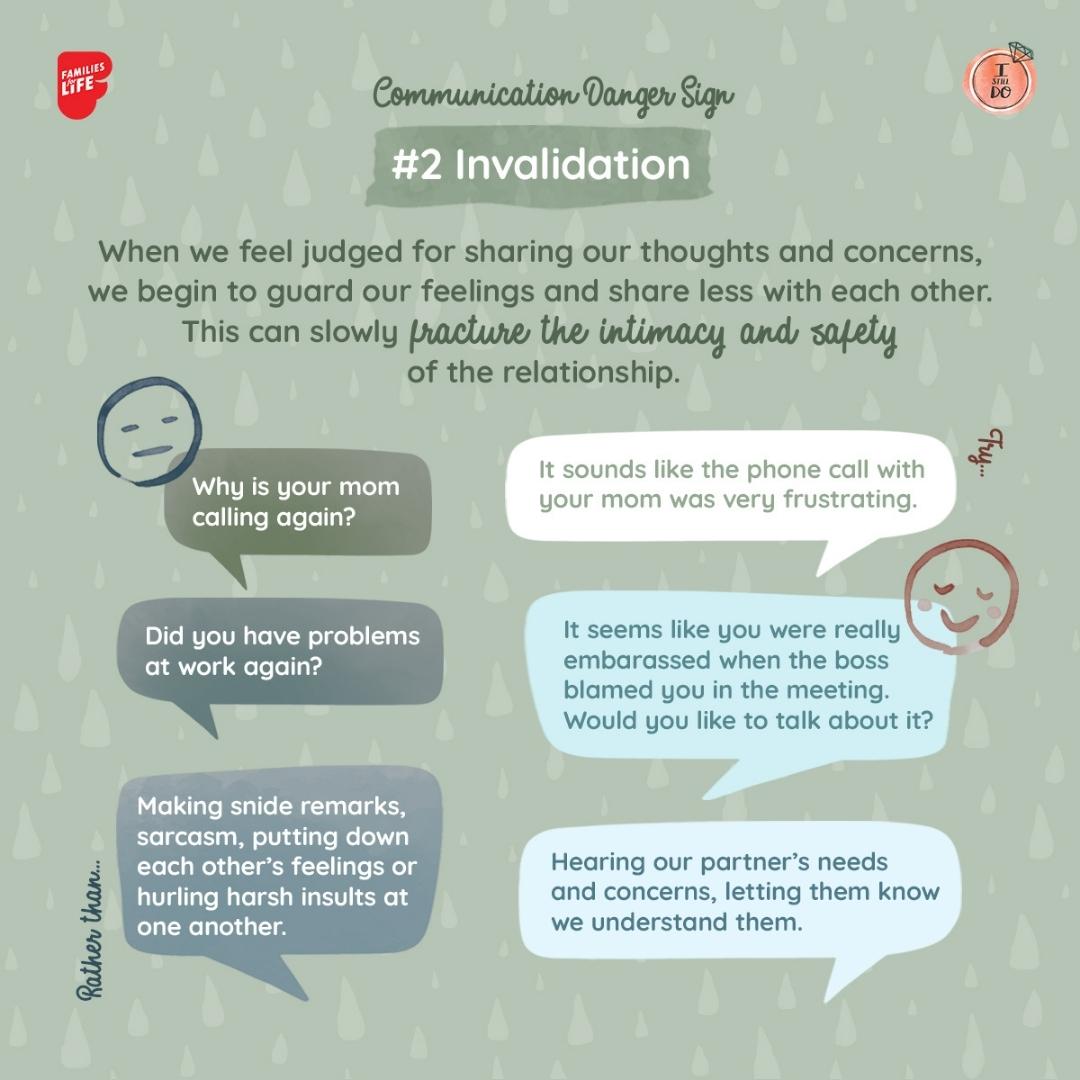
In relationships, invalidation comes in many forms. This includes making snide remarks and sarcasm, diminishing each other’s feelings, or hurling harsh insults at one another. If you and your partner frequently speak with contempt or belittle one another, pause and reflect! Attacking the character of our partner cuts to the heart and can do devastating relational damage.
Research shows that when we let our partner know we understand them (even when we don’t agree or fully understand their feelings), it helps them to realise that we hear their needs and concerns. For example, rather than say, “Why is your Mum calling again?”, say “It sounds like the phone call with your Mum was really frustrating.” Or rather than saying, “Did you have problems at work again?”, say “It seems you were really embarrassed when the boss blamed you in the meeting. Would you like to talk about it?” When we feel judged for sharing our thoughts, fears, and concerns with our partners, we begin to guard our feelings and share less with each other. This can slowly fracture the intimacy and safety of the relationship. Remember, words have the power to build your partner up or tear them down. Use that power wisely.
Understanding Communication Danger Sign #3: Negative Interpretation
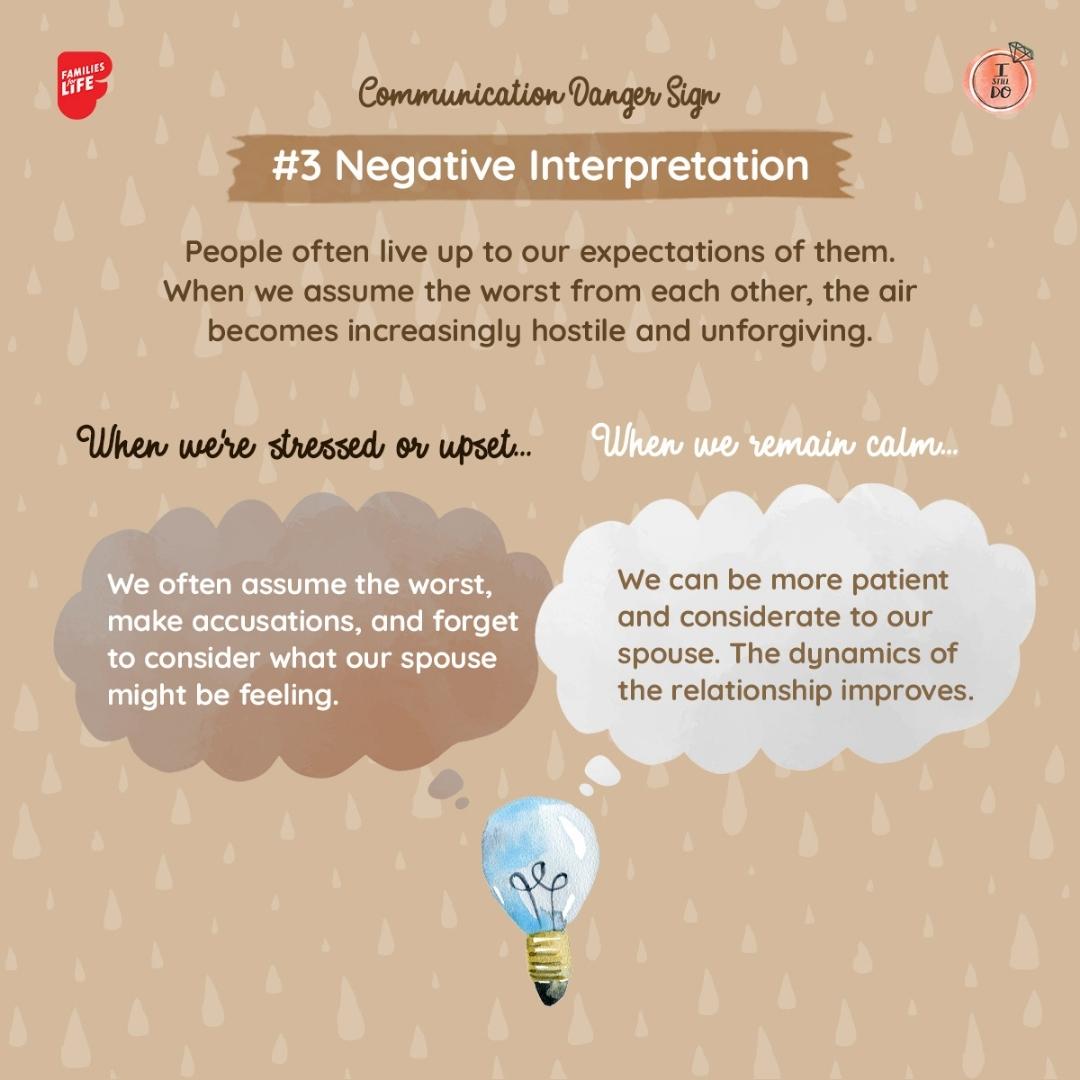
When we’re stressed or upset, we often forget to also consider what our partners might be feeling. In healthy relationships, we have to actively fight the urge to assume the worst or make senseless accusations. If your partner is running late getting home, instead of assuming that they don’t care about you or value your time, pause to consider other explanations. Maybe they got caught in a late meeting with their boss, traffic was especially heavy due to an accident, or they stopped to pick up dinner. People often rise or fall to our expectations of them. When we remain calm and be more accommodating toward our partners, the dynamics of the relationship improves. When we assume the worst from each other regularly, the air becomes increasingly hostile and unforgiving. If you or your partner slide into negative interpretations easily, consider whether the interpretations are accurate. Own up and apologise for any miscommunication and try to more gently and clearly communicate what’s really going on.
Understanding Communication Danger Sign #4: Withdrawal
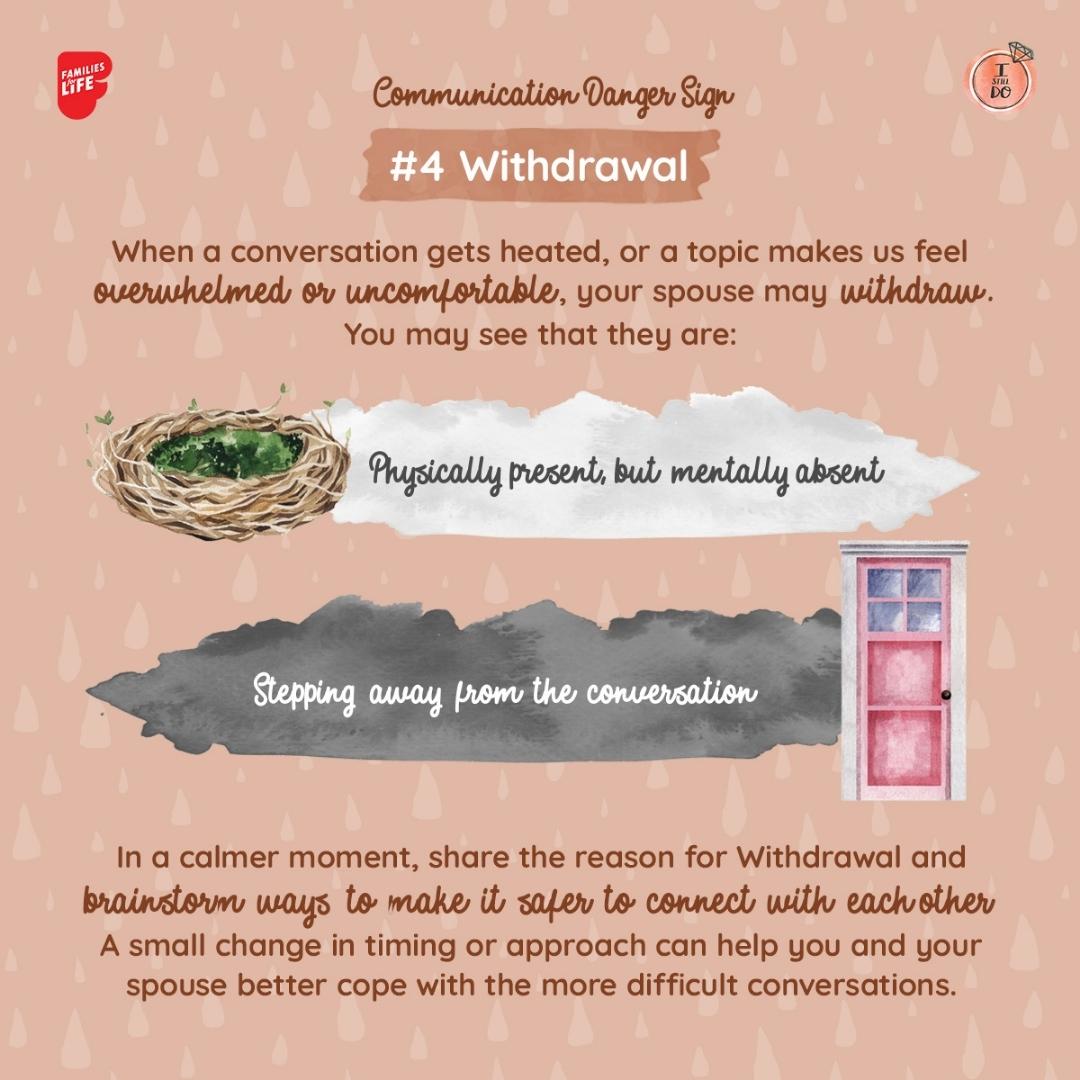
When a conversation gets heated, or the topic makes us feel overwhelmed or uncomfortable, some partners withdraw. They may stay physically present, but mentally tune out and disengage. Or they might even step away to distance themselves from the conversation. While a Time Out is a good way to calm down and collect our thoughts, remember to come back to those conversations after the pause, ready to reconnect.
Perhaps one partner withdraws because they feel their partner blames or criticises them. Or they feel that their partner shares too much information too quickly and they just can’t process it. In a calmer moment, share the reason for the withdrawal and brainstorm together for ways to make it safer to connect with each other. Partners should let each other know what helps them stay engaged on the tougher topics. Once they realise that a small change in the timing or approach can help to better cope with the more heavy-hearted talks without withdrawing, they will be more motivated to compromise and try things in a new way.
If you like what you read, check out other mini marriage PREP tips here!